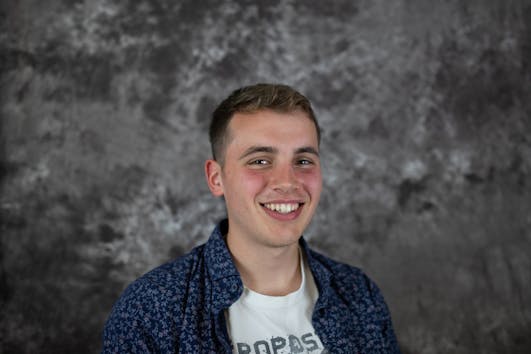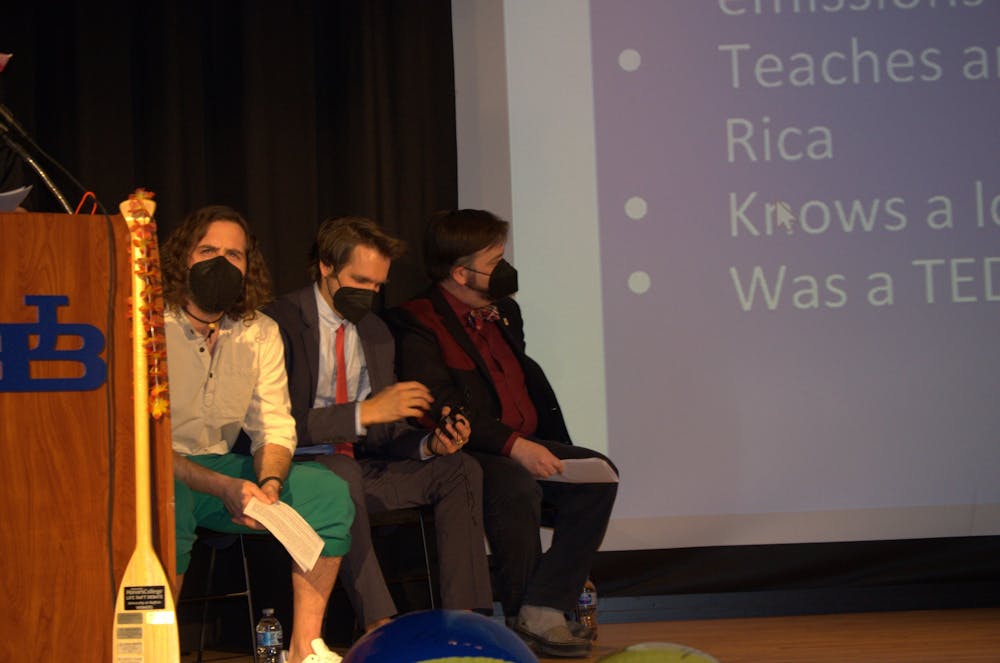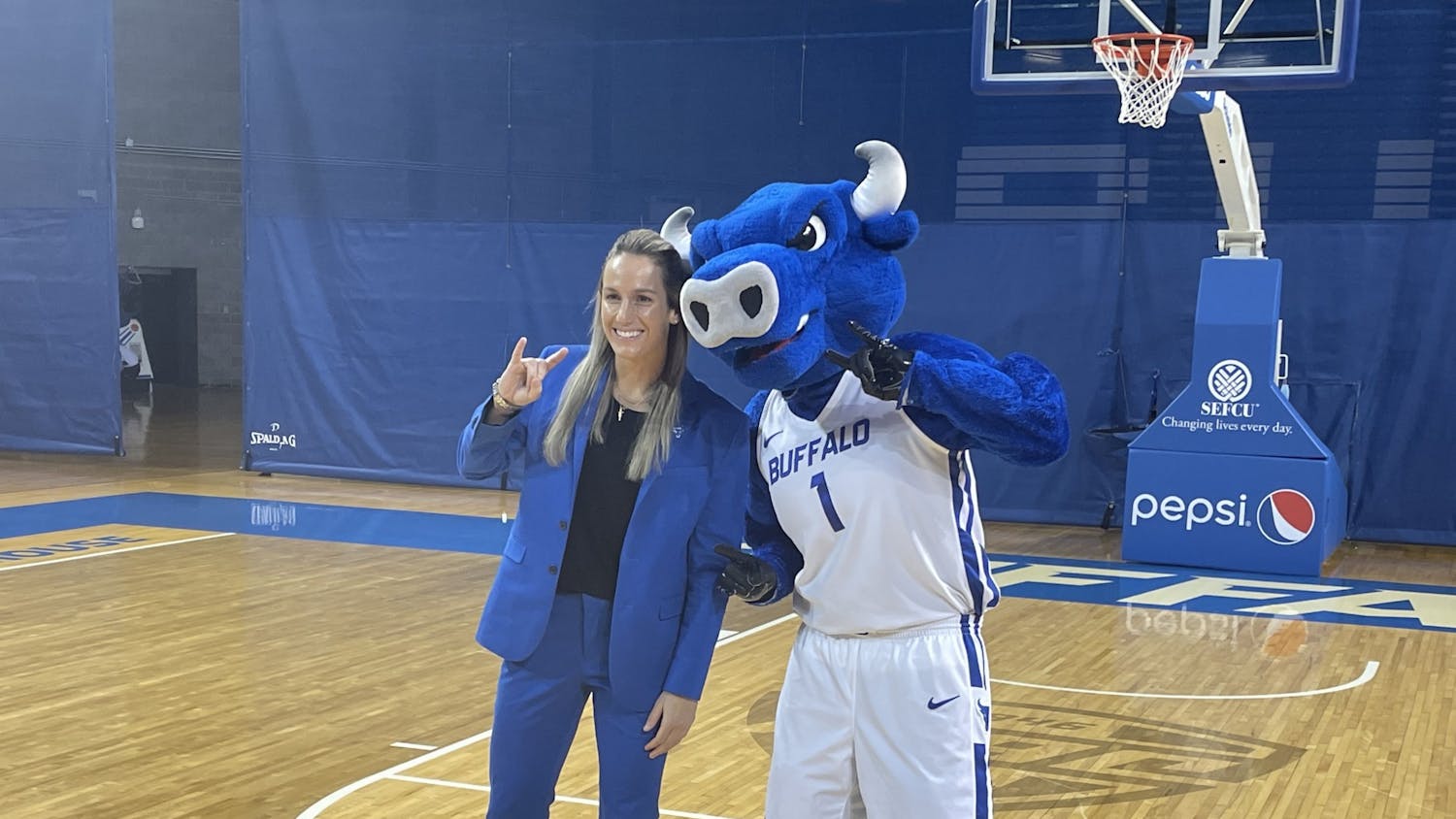Just over 100 students faced the aftermath of the apocalypse for the 11th year in a row in the Student Union Theater Tuesday to the tune of “It’s the End of the World as We Know It” by R.E.M.
Their prerogative? Elect one of six professors to fill the last seat on their hypothetical life raft as it sails away to — hopefully — rebuild humanity on a deserted island.
Joseph Costa, instructor of anatomy and pathology, out-debated his five colleagues — law lecturer Paul Linden-Retek, electrical engineering professor Kevin Burke, political science professor Shawn Donahue, history professor Cari Casteel, philosophy professor David Gray and environmental engineering professor John Atkinson, who won last year’s contest and served as devil’s advocate — to win 32% of the audience’s votes, the last seat in the raft and have his name engraved on the debate’s trophy: a wooden boat paddle.
Over the course of the event, Costa maintained he was best fit to join the raft because of his vast knowledge of the human body, arguing that his field has equipped him to handle both medical emergencies and long-term chronic illnesses.
“So anatomists — after spending God knows how many hours in the gross lab and poring over diagrams — get something akin to X-ray vision,” Costa said. “And it gets to the point where most of us can kind of look through somebody’s skin and know exactly where their nerves, arteries, bones, muscles — all the things that give us our shape — are… Now this knowledge has applications [related] not only to conditions that are acute, that are sudden and severe, but also chronic ones.”
Some candidates relied on their expertise in humanities-driven skills like collective reasoning and conflict resolution to drive home their points. Donahue argued that his experience as a prosecutor and political scientist has garnered him the ability to mediate different groups of people.
“There’s going to be a lot of us on that life raft, with different experiences and values,” Donahue said. “We’re going to have to set up a new government when we get off of it. We’re going to have to determine electoral processes and rights. How are we going to bridge those differences between different people?”
Other candidates, like Burke, spoke less about how their field of expertise would contribute to the rebirth of society, but focused their arguments more on winning over the audience through humor rather than preparation.
“You need someone on the life raft who’s going to provide a little comedy and you’re not going to fear will put you in jail,” Burke said, taking a direct shot at Donahue. “If I had to decide who to pick, I’d be picking me.”
But despite the stiff competition and low blows exchanged between contestants, Costa says his win only solidified his love for his field.
“Probably the biggest takeaway for me from all of this is realizing how much value there is in what I teach,” Costa said. “It’s not just bland science. It’s not just a dry understanding of the human body, but there’s a lot of value and humanity that comes from understanding the body and its ailments. And so preparing for this, I fell in love with my discipline all over again.”
Grant Ashley is the senior news/features editor and can be reached at grant.ashley@ubspectrum.com
Reilly Mullen is the editor in chief and can be reached at reilly.mullen@ubspectrum.com

Reilly Mullen is the editor-in-chief at The Spectrum. She is a senior majoring in political science with a journalism certificate. She enjoys Dunkin’ iced lattes and Scrabble. A former web, features, news and managing editor, she is a columnist at heart but has covered everything from UB Football to breaking news.

Grant Ashley is the editor in chief of The Spectrum. He's also reported for NPR, WBFO, WIVB and The Buffalo News. He enjoys taking long bike rides, baking with his parents’ ingredients and recreating Bob Ross paintings in crayon. He can be found on the platform formerly known as Twitter at @Grantrashley.





